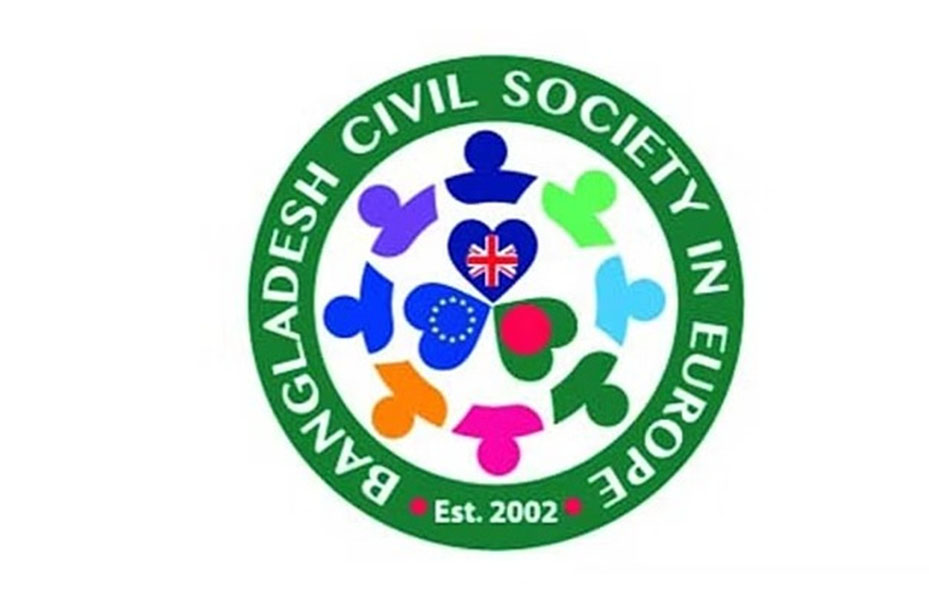

A letter penned by a group of six members of the European Parliament (MEPs) criticising Bangladesh has sparked outrage within the Bangladeshi diaspora in Europe.
The MEPs wrote to Josep Borrell, the EU's High Representative for Foreign Affairs, levelling a series of allegations against the South Asian country and its government.
In response, the Bangladesh Civil Society in Europe provided a detailed rebuttal to Borrell, according to a report by Brussels-based newspaper EU Reporter.
The letter was signed by 300 distinguished individuals, including scientists, lawyers, businesspeople and cultural figures, of Bangladeshi heritage in Europe, according to bdnews24.com.
They expressed deep indignation over the letter written by Slovak MEP Ivan Štefanec, along with two other members from the EPP, two from Renew, and one from the Green party.
According to the Bangladesh Civil Society in Europe, the cross-party group of MEPs is seemingly advocating for the opposition Bangladesh Nationalist Party (BNP) and its leader, Khaleda Zia, a former prime minister who was previously incarcerated for corruption allegations, but subsequently released on humanitarian grounds.
The Bangladeshi community took particular umbrage with the MEPs' call for economic, diplomatic and political pressure to be exerted on Bangladesh, which they believe is based on "false" and "untrue" information that portrays the country in a negative light to the outside world.
They also drew attention to the history of extra-judicial killings and enforced disappearances in Bangladesh, which they said were initiated by Ziaur Rahman, the founder of the BNP, following the assassination of Bangabandhu Sheikh Mujibur Rahman in 1975.
The response refers to Amnesty International's reports, which indicate that during Zia's tenure, more than 1,000 military personnel were executed.
The torture, kidnapping, abduction, and killing of opposition leaders, activists, journalists, and minority community leaders continued during the rule of the BNP-Jamaat-e-Islami alliance under Khaleda Zia in 1991-1996 and 2001-2006.
They also highlighted the formation of the Rapid Action Battalion in 2004 during the BNP and Jamaat-e-Islami's rule, which led to the arrest, torture, and killing of thousands of leaders and activists from then opposition Awami League.
The Bangladesh Civil Society dismissed the MEPs' claims of a "midnight election" in 2018, suggesting a pre-determined result, as baseless in light of recent investigative reports.
They believe the MEPs should have considered the erosion of the rule of law and human rights during the BNP-Jamaat regimes, while highlighting the rampant corruption, money laundering, and the rise of Islamic militancy during that period.
The prominent Bangladeshis emphasised the progress Bangladesh has made economically and socially, transitioning from a low-income to a middle-income country according to the World Bank's definition of prosperity.
Under Prime Minister Sheikh Hasina's leadership, Bangladesh is on track to graduate from its least developed status by 2026 and aims to become a "developed and smart" nation by 2041, they pointed out.
They also criticised the MEPs' suggestions of visa restrictions and reduced access to the European market for Bangladesh, highlighting that such policies would harm a peace-loving nation. The eminent Bangladeshis underlined their belief that the MEPs' misguided intervention will be overshadowed by stronger cooperation between Bangladesh and all European countries.
The letter to Borrell was prepared and endorsed by a host of eminent expatriate Bangladeshis, including Dr Mazharul Islam Rana, a world-renowned scientist from the UK, Sharaf Ahmed, a prominent journalist from Germany, Anil Das Gupta, a distinguished engineer from Germany, and Partha Pratim Majumder, a celebrated mime artist from France.
Other signatories include Dr Shaheed Hossain, a nuclear scientist from Austria, and international artist Prof Shohela Purvin Shova from France, as well as lawyers, physicians and businesspeople from Belgium, the UK, the Netherlands, Denmark, Finland, Portugal, the Czech Republic, Ireland, Italy, Spain and Sweden.


 For all latest news, follow The Financial Express Google News channel.
For all latest news, follow The Financial Express Google News channel.